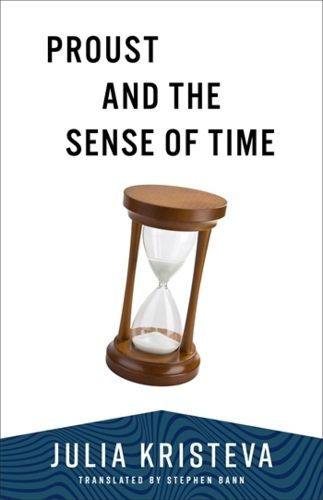Readings Newsletter
Become a Readings Member to make your shopping experience even easier.
Sign in or sign up for free!
You’re not far away from qualifying for FREE standard shipping within Australia
You’ve qualified for FREE standard shipping within Australia
The cart is loading…






Julia Kristeva presents a thoroughly original and compelling reading of Proust's Remembrance of Things Past, first delivered at the 1992 T.S. Eliot Memorial Lectures at Canterbury. Kristeva's first essay, "Proust and Time Embodied," takes a broadly psychoanalytical, linguistically sensitive approach to Proust's exploration of time and the operation of memory. Next, in "In Search of Madeline," she delves into Proust's concept of the little cake that flooded him with the taste of childhood regained, providing an explanation for Proust's search for the deeper levels of childhood grounded in her psychoanalytic experience.
Throughout Proust and the Sense of Time, Kristeva draws on Proust's notebooks and manuscripts, pointing out significant variations in the different versions of his work. She examines his early philosophical training and the philosophical trends in Paris at the turn of the century, seeking to explain how he arrived at his concept of the primacy of memory and sensation.
$9.00 standard shipping within Australia
FREE standard shipping within Australia for orders over $100.00
Express & International shipping calculated at checkout
Julia Kristeva presents a thoroughly original and compelling reading of Proust's Remembrance of Things Past, first delivered at the 1992 T.S. Eliot Memorial Lectures at Canterbury. Kristeva's first essay, "Proust and Time Embodied," takes a broadly psychoanalytical, linguistically sensitive approach to Proust's exploration of time and the operation of memory. Next, in "In Search of Madeline," she delves into Proust's concept of the little cake that flooded him with the taste of childhood regained, providing an explanation for Proust's search for the deeper levels of childhood grounded in her psychoanalytic experience.
Throughout Proust and the Sense of Time, Kristeva draws on Proust's notebooks and manuscripts, pointing out significant variations in the different versions of his work. She examines his early philosophical training and the philosophical trends in Paris at the turn of the century, seeking to explain how he arrived at his concept of the primacy of memory and sensation.